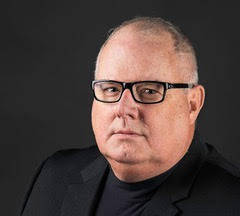Something must be done to stop DUIs
Two adults are killed when an impaired driver speeding on Interstate 11 rear-ends their sedan parked on the shoulder. A small child and two others are hospitalized.
Three days later, an 8-year-old Las Vegas boy is killed and his parents hospitalized in critical condition by an impaired driver who sped through a stop light and slammed into their car. The driver was going 103 mph in a 45-mph zone. This crash visibly affected seasoned officers at the scene and evoked hundreds of angry social media comments toward the driver, a 25-year-old woman. Afterwards, a school picture of the child was published that generated heartbreak and heartache throughout Clark County.
Will the impaired-driving carnage on our highways ever stop?
Alcohol is the common denominator in traffic accidents and fatalities, but the opioid epidemic and legalization of marijuana have contributed to the ongoing impaired-driving nightmare.
While alcohol-related traffic fatalities have decreased over the years, due in part to the efforts of MADD, STOP DUI and other organizations, more than 16 percent of drunken driving accidents include the offender using one or more illegal drugs.
It is too early to tell if the legalization of marijuana in Nevada has led to more fatalities, but anecdotal evidence from police officers and statistics from Colorado, where marijuana was legalized in 2014, indicate marijuana legalization is a factor in traffic fatalities.
In addition to being a revenue-generating cottage industry for lawyers who specialize in DUI, impaired driving is a numbers game that statistically favors the impaired — until they injure or kill themselves or others.
More than 1 million drivers were arrested in 2016 for alcohol- or drug-impaired driving.
More than 10,000 people were killed by impaired driving, which constituted 28 percent of all traffic-related deaths in the United States.
An impaired driver, on average, will drive 80-200 times before being arrested.
More than 50 percent of drivers with suspended or revoked licenses continue to drive, oftentimes while impaired.
Some studies predict one in 60 vehicles in the daytime are operated by an impaired driver.
One in 12 drivers are impaired during nighttime hours and the numbers increases to as high as one in four drivers after 11 p.m. It may be higher in Boulder City and other areas where the drinking establishments are just a short drive home.
I asked earlier, “Will the impaired-driving carnage on our highways ever stop?” It may be merely a rhetorical question.
The carnage will continue as long as we have a cottage industry wherein attorneys obtain a $7,500 retainer to manipulate the system to eventually reduce an impaired-driving charge to the equivalent of a parking ticket.
There will be no relief with the slaughter on our highways when we have attorneys who, in the early morning hours of a weekend, interfere with court-ordered blood draws during DUI traffic accident investigations.
When elected officials embarrass themselves by claiming to have consumed one cocktail but can barely walk after a 35-mile drive, the insanity will march on.
While peace officers spend hours completing a dozen forms to document a misdemeanor impaired-driving arrest, other impaired drivers proceed unimpeded on the highways.
Additional support for organizations such as STOP DUI and MADD and increased law enforcement efforts will reduce fatalities and serious injuries, but there are no solutions to eliminate the problem.
Impaired driving is almost a political crime. Unless there is a fatality or serious injury, elected officials seem to be the only ones whose name and mug shot are plastered in the local newspapers. Perhaps one deterrent would be to publish the mug shots and names of all impaired driving suspects.
Dan Jennings is a 38-year law enforcement veteran. He can be reached at bcpd267@cox.net.





